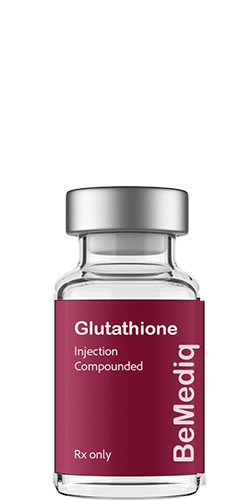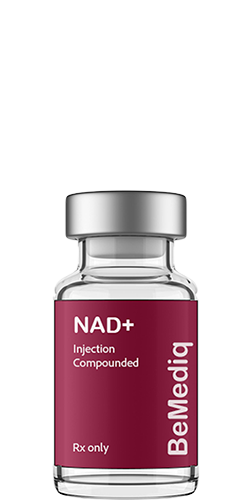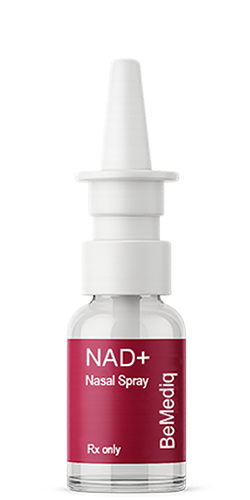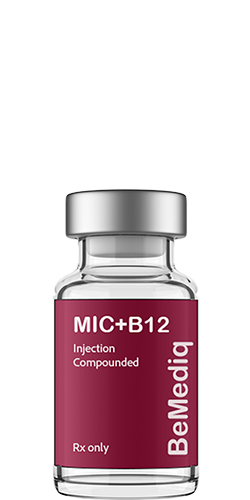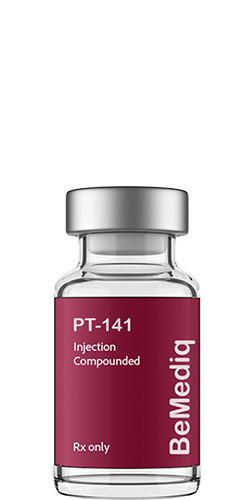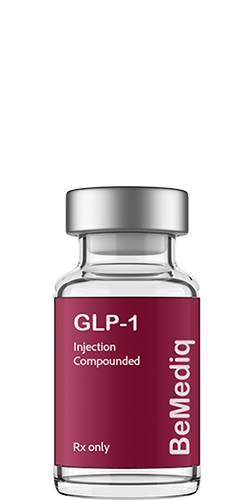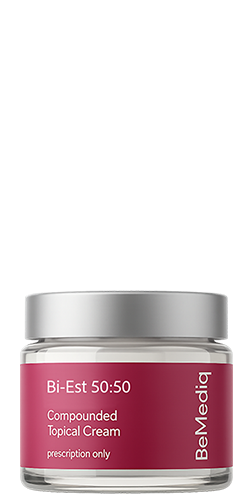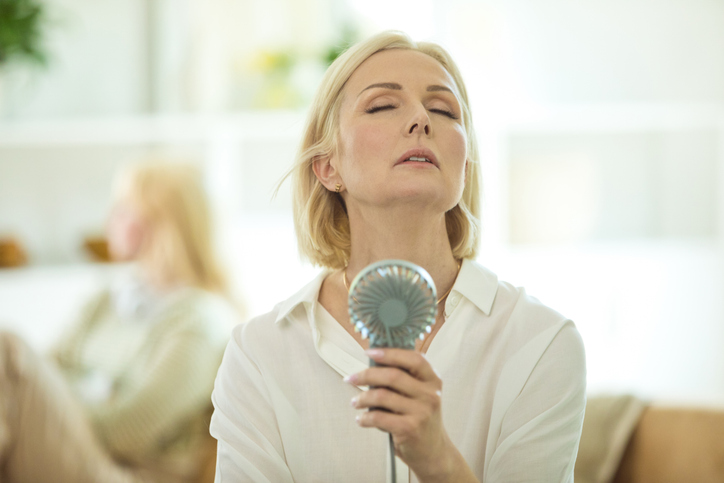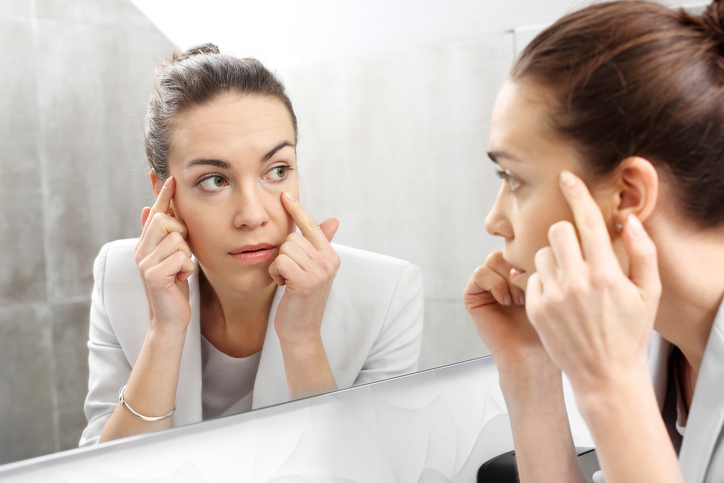How PMS nearly cost me my career – and how hormone support, cycle awareness, and the right doctor helped me take back control.

Editor's Note: Why PMS Deserves to Be Taken Seriously
Many people often dismiss PMS as merely a mild annoyance. But for many women, it causes severe emotional, physical, and cognitive symptoms that interfere with their daily life and career. In this story, we share how one woman's monthly symptoms left her physically paralyzed on one of the most important days of her career-and howhormonal support and cycle-based planning helped her take back her power.
Key Takeaways:
- PMS can severely impact mental clarity and physical performance.
- Estrogen dominance and low progesterone may be underlying causes.
- Hormonal support and personalized cycle planning can be life changing.
When Ambition Meets Exhaustion
I used to be ambitious. Not in a bad way - I was passionate. I loved my job, my team, and the projects I worked on. Presentations were my thing - the stage, the focus, the impact. I was good at it. And I knew it.
I'd spent two weeks refining and perfecting every word of this keynote. Presenting it was the moment I'd been working toward. My steppingstone to the next level in my career.
A Collapse That Hijacked My Big Day
And then came Monday morning. The day I had worked so hard for. I woke up and instantly knew I can't. Not "I don't want to." I honestly couldn't. My body felt like a heavy, soaked coat. Eve y muscle ached. My head was foggy, my eyes dry, my belly tight, throbbing, cramping. I tried to get up and nearly collapsed.
I looked at the clock: 8:12 AM.In 8 minutes, I was supposed to be on my feet, confident, clear, and composed.But there I was, lying on my bedroom carpet. With a hot water bottle. In fetal position. Crying.
I texted my boss thatI was sick. I felt like a fraud, as if I had let myself down. Maybe it was just stage fright? I may have pushed myself too far.
The Breakthrough: It Was PMS
I spoke with a therapist. She told me to take more breaks and set more precise boundaries. I added. But deep down, I knew: That wasn't it. Later, over coffee with a colleague, I finally told her what had happened. She looked at me for a long moment and said,"Sounds familiar. For me, it was PMS - severe. I feel like a completelydifferent person before my period."
I blinked. PMS. That can't be that bad, right? She recommended a platform with doctors specializing in hormonal cycle disorders. I hesitated. They booked an appointment.
How a Doctor Helped Me Get My Power Back
The doctor listened. She didn't just ask about symptoms - she inquired about sleep, diet, daily life, and stress. She ordered a hormone analysis.
The result: clear estrogen dominance. Far too little progesterone in the second half of my cycle - the hormone that calms and stabilizes. Add to that: elevated cortisol levels due to chronic stress. And massive blood sugar fluctuations from irregular, overly sweet meals, precisely during the phase when my body was at its most sensitive.I wasn't weak. I was hormonally out of balance.
How I Changed My Routine, Step by Step
I received a prescription for a progesterone supplement. Targeted micronutrients. And above all: understanding.Knowledge. Too s. After just two cycles, I began to feel my nervous system start to settle.
The pressure in my breasts is gone. The constant irritability is subsiding. I'm better. Less impulsively. For the first time in months, I felt safe inside myself again.
On top of that, my doctor helped me actively work on lowering my cortisol levels:
I started taking daily walks in fresh air, without my phone.
I added breathing exercises and yoga to my evenings. I reduced caffeine and swapped my second coffee for ashwagandha tea.
I focused on regular, nutrient-rich, low-sugar meals - especially during the luteal phase.
And I set intentional boundaries: No scrolling in bed. No multitasking after 8 PM.
These seemingly small changes, combined with the progesterone* and MIC B12*, made all the difference.
Planning With My Cycle, Not Against It
My cycle no longer ruled my life.I was in tune with it again. Today, I know what I need and when I need it. Iplan differently. I'll speak up earlier. I treat my cycle like an internalseason. Important presentations or intense meetings? In my schedule, I schedulethem during my follicular or ovulation phase - when my energy is high, my focusis sharp, and my presence is strong.
During the luteal phase and around menstruation, I carve out time for deep work, quiet tasks, and reflection. My cycle journal is my compass. It shows me when to push and when to nurture. It helps me understand my physical, emotional, and mental rhythms -and shape a life that supports me instead of overwhelming me.
My Big Presentation
Last week, I gave another big presentation - clear-headed, grounded, eyes shining. This time, not against my cycle, but with it.
Julia, 34, Marketing Executive*
Did you know?
Feeling like a different person before your period might be linked to hormonal imbalances, especially low progesterone and high estrogen. Your liver helps clear out used hormones, and when it's under stress, this balance may be affected.
A peer-reviewed study published in the Journal of Clinical Medicine suggests that nutrition and liver health play a role in hormone metabolism.¹ Nutrients like MIC + B12 may support metabolic and liver pathways, though more research is needed.²
- "Food and Nutrition in the Pathogenesis of Liver Damage"
- "Vitamin B12 deficiency"
- "Advances in the Understanding of Cobalamin Assimilation and Metabolism"
Some women support their liver during this phase with nutrients like MIC + B12, which may help with methylation and detox pathways.*
Discover our clinician-guided MIC-B12 formula
Final Words of Support
Many women suffer from PMS each month and blame themselves. But what if your body needs support?
Our platform connects you with experienced doctors who understand hormonal health and can guide you toward safe, science-based solutions tailored to your cycle.
Dsclaimer: This story is shared for educational purposes only.It is not intended to diagnose, treat, or cure any condition. Always consult a qualified healthcare provider for personal medical advice.. The name and some identifying details have been changed to protect privacy. Model portrayed is for illustrative purposes only.
Discover Products to Support Your Health & Well-Being
Science Spotlight
Curious About the Science behind this Article?
1. Vitamin B12 & Liver Function: What the Science Says About Energy, Hormones, and Aging
Based on the peer-reviewed scientific article: "Advances in the Understanding of CobalaminAssimilation and Metabolism" - https://pmc.ncbi.nlm.nih.gov/articles/PMC2809139
What researchers explored:
- What makes vitamin B12 biologically unique?
- How does the liver convert B12 into active forms?
- Why B12 deficiency might stay undetected - with "normal" lab results?
- When can B12 injections make a difference?
What is the study about?
This scientific review explain show vitamin B12 is absorbed in the gut, transported through the blood, and stored and activated in the liver, allowing the body to utilize it effectively.
It highlights the key steps necessary for this process to work correctly, including the role of special proteins from your stomach and liver.
If one of these steps breaks down, you may develop a hidden B12 deficiency - even if your blood test looks"normal." Curious? Read more
2. Vitamin B12 Deficiency: The Silent Saboteur of Energy, Mood & Metabolism
Based on a scientific study:"Vitamin B12 deficiency ", published on PubMed: https://pubmed.ncbi.nlm.nih.gov/28660890
What this study revealed - in everyday language:
Ever feel drained, foggy, or just not yourself, despite eating well? It might not be "just stress" or"getting older." This clinical review dives into something many women overlook: vitamin B12 deficiency - and why it's more common (and sneaky) than you'd think. Curious? Read more
3. The Liver–Skin Connection: How Detox & Nutrition Shape Your Skin, Hormones & Energy
Based on the peer-reviewed review: "Food and Nutrition in the Pathogenesis of Liver Damage" -https://pmc.ncbi.nlm.nih.gov/articles/PMC8073814.
What researchers reviewed:
This peer-reviewed study examines the impact of daily food choices on liver health, long before any symptoms of liver disease appear. It highlights how everyday habits - such as consuming excessive isolated fructose (often found in soda or processed snacks), missing key nutrients, or living with chronic stress - can silently strain your liver.The review also explores which nutrients may help reduce damage and support the liver's ability to regenerate and detoxify. Curious? Read more
Scientific references on PMS, progesterone, and estrogen dominance:
Estrogen Dominance, Low Progesterone, and PMS Treatment. Schmidt, P.J., & Rubinow, D. R. (1993). Estrogen and progesterone in mood disorders. Bai Lire's Clinical Endocrinology andMetabolism, 7(2),581-594.
Rapkin, A. J. (1989). Hormonal correlates of premenstrual syndrome. Obstetrics and Gynecology Clinics of NorthAmerica, 16(3), 563-575.
Halbreich, U.,Borenstein, J., Pearlstein, T.,& Kahn, L. S. (2003). Endocrine determinants of premenstrual syndrome and premenstrual dysphoric disorder.Journal of Affective Disorders.
Magos, A. L., Brincat, M., &Studd, J. W. (1986). Treatment of the premenstrual syndrome by sublingual estradiol and progesterone implants. British Journal of Obstetrics and Gynaecology, 93(8), 778-783.
Marjoribanks, J., Brown, J.,O'Brien, P. M. S., & Wyatt, K. (2013). Selective serotonin reuptake inhibitors for premenstrual syndrome. Cochrane Database of Systematic Reviews,2013(6), CD001396.
Holtorf, K. (2009). The bio-identical hormone debate: Are bio-identical hormones (estradiol, estriol, and progesterone) safer or more efficacious than commonly used synthetic versions in hormone replacement therapy? PostgraduateMedicine, 121(1), 73-85.

